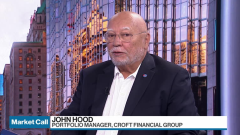Feb 2, 2024
BOE Chief Economist Warns UK Rate Cuts Are Still ‘Some Way Off’
, Bloomberg News

(Bloomberg) -- Bank of England Chief Economist Huw Pill said the first interest rate reduction is still “some way off” despite signals that borrowing costs have probably peaked.
Addressing the central bank’s regional agents after the deeply split vote to maintain the key rate at 5.25%, Pill said policy needed to remain “restrictive until the consistent component of inflation has been squeezed out of the system.”
The remarks tempered expectations on a rapid series of rate cuts this year. Investors dropped bets for a full percentage point of reductions by December after Pill’s remarks. They also were reacting to data from the US showing the American economy is generating many more jobs than expected and may be running too hot for early policy loosening.
While BOE forecasts on Thursday indicate that lower borrowing costs will soon be necessary to keep the economy out of recession, Pill said those projections are “conditional” on inflation evolving the way officials expect.
The BOE’s forecasts, released alongside the vote, showed that there was significant risk in holding rates at 5.25% for too long. Using the assumption that rates do not change, the UK falls into a recession that lasts 18 months.
The Monetary Policy Committee’s pivot from warning of further rate rises to acknowledging lower rates are on the cards reflected signs that underlying inflation is falling, Pill said, but he wants more proof that inflation will remain suppressed.
“For me, at least, we don’t have sufficient evidence yet,” Pill said. “So that moment is still some way off.”
“We are focused on what we’ve identified in the past as the key indicators of this persistent component of inflation: developments in the UK labor market, UK wage dynamics and UK services price inflation,” he said.
A few weeks ago, traders were betting that rates would drop to 4% by December. Markets had fully expected a first rate cut in June but now think it is touch and go.
Pill added that the nine-member MPC will maintain the “restrictiveness in the stance of policy” until “we can be sure that we can begin to move forwards in reducing the level of restriction.”
Thursday’s BOE rate vote was the most deeply divided since 2008. One MPC member wanted to lower rates to 5%, and two voted to rise them to 5.5% and the rest wanted no change.
Pill said he remained concerned about “weak” activity in the UK, but Governor Andrew Bailey told the media on Thursday that the economy appeared to be picking up.
Analysts at Bank of America Merrill Lynch see the BOE raising rates in August as underlying inflation remains sticky.
“The UK will be the last of the major central banks to start and is likely to move more slowly, at least compared with the European Central Bank,” they said in a note. The UK still has a bigger persistent inflation problem, despite recent improvements. The BoE this week reinforces our view.”
©2024 Bloomberg L.P.






